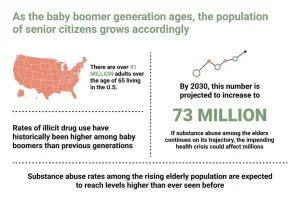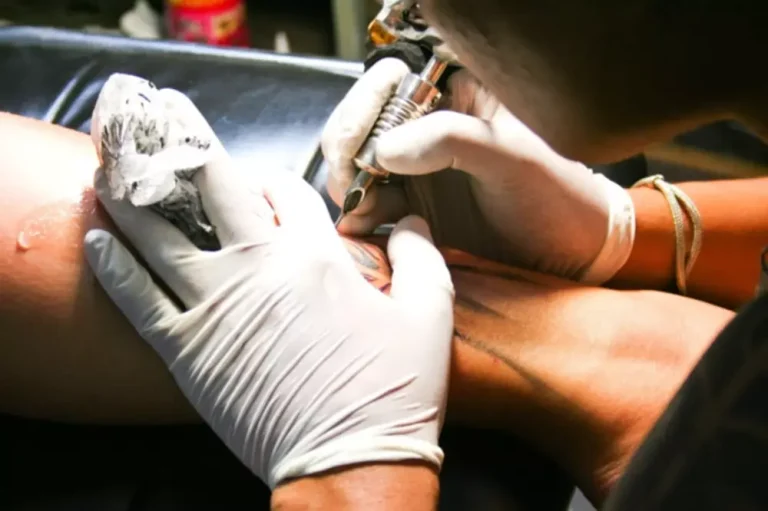
However, in people with an alcohol allergy, the system mistakenly produces antibodies to attack alcohol following exposure to the substance, triggering various symptoms. If you have alcohol allergy, the only way to avoid symptoms is to avoid alcohol completely. Alcohol intolerance and alcohol allergy may share certain symptoms, but they are two different conditions. Scientists have not yet identified the reason for this association. Chronic fatigue syndrome (CFS) is a chronic condition involving pain, alcoholism insomnia, and severe fatigue that does not improve with rest.

Delayed Symptoms
- If a person is allergic to a particular ingredient found in some drinks, they could switch to drinks that do not contain it.
- However, if you experience severe symptoms, seek emergency medical attention immediately.
- Your doctor can help you determine the cause of your symptoms and provide you with appropriate treatment.
The primary cause of alcohol intolerance is a genetic mutation that affects the production of enzymes responsible for alcohol metabolism, mainly aldehyde dehydrogenase (ALDH2). A deficiency or inactivity of ALDH2 leads to the accumulation of acetaldehyde, triggering various intolerance symptoms. It’s important to note that while some people may experience sudden onset alcohol intolerance, others may develop it gradually over time.
What Causes An Alcohol Allergy?
To prevent alcohol intolerance, it’s important to avoid alcohol if you know it causes symptoms for you. If you choose to drink anyway, limiting your consumption or choosing drinks with lower alcohol content may help prevent symptoms from occurring. If you’re experiencing any combination of these symptoms after drinking alcohol, it’s important to talk to your doctor about possible causes and treatment options. If you’re experiencing sudden onset alcohol intolerance, it’s important to talk to your doctor. Yes, an alcohol rash typically goes away once the alcohol is completely metabolized and removed from your system.

Moderating Your Drinking
- This sensitivity can cause the immune system to overreact when alcohol is consumed, resulting in an allergic reaction and the appearance of a rash.
- In severe cases, symptoms can escalate to difficulty breathing or anaphylaxis, a life-threatening allergic reaction.
- Both conditions can significantly impact an individual’s quality of life, but the substances involved and the mechanisms behind the intolerance differ.
- If you’re experiencing alcohol intolerance, the most effective treatment is to avoid alcohol altogether or limit your consumption.
If you have any unpleasant symptoms after drinking alcohol, see your healthcare provider. Your provider can help get to the bottom of your symptoms and recommend the best next steps. It’s possible to develop an alcohol allergy at any point in your life. Sudden onset of symptoms may also be caused by a newly developed intolerance. In rare cases, pain after drinking alcohol might be a sign that you have Hodgkin’s lymphoma. In some people, intolerance or allergy to alcohol can also result in uncomfortable or even dangerous symptoms.
Alcohol intolerance tests and how they work
Herbal teas such as chamomile, peppermint or ginger tea can be enjoyed hot or cold and provide a soothing alternative to alcoholic beverages. Fruit juices such as orange juice, cranberry juice, or apple cider can be enjoyed on their own or mixed with other non-alcoholic beverages to create delicious mocktails. By following these tips, you can manage your alcohol intolerance during social situations and still enjoy spending time with friends and family. Before attending a social event, plan ahead by researching the venue and menu.
Can I still drink alcohol if I have alcohol intolerance?

The doctor may be able to make a diagnosis or recommend testing for allergies, intolerances, or genetics. When someone has alcohol intolerance, the ADH2 enzyme does not break down the alcohol efficiently, leading to a build-up of acetaldehyde. One older study in people with asthma found that over 40 percent of participants said that drinking alcohol prompted allergy or allergy-like symptoms. These range from heart and liver damage to a greater risk of certain cancers. There’s no cure for alcohol intolerance, but avoiding alcohol or choosing drinks with lower alcohol content can help manage symptoms.
If you’re experiencing alcohol intolerance, the most effective treatment is to avoid alcohol altogether or limit your consumption. The most effective way to manage alcohol allergy rash is through complete avoidance of alcohol. If exposure occurs, OTC antihistamines can help alleviate symptoms.
- We provide comprehensive allergy testing, personalized treatment plans, and ongoing support to help you manage your allergies effectively.
- As a result, even a minimal intake of alcohol can lead to noticeable and often severe reactions, distinguishing this condition from the typical experience of over-intoxication.
- Anaphylaxis is a life threatening condition that involves a series of symptoms, such as a rash, low pulse, and shock.
It’s important to consult with a healthcare provider, who can provide appropriate testing and treatment options based on a detailed medical history and observation of symptoms. An alcohol allergy occurs when the immune system mistakenly identifies alcohol as a harmful substance, triggering an allergic reaction. This reaction involves the production of allergy-specific antibodies. Common allergens in alcoholic beverages that can cause such reactions are barley, hops, yeast, rye, wheat, gluten, and allergic reaction to alcohol sulfites.

Most cases of suddenly developed alcohol intolerance occur due to starting a new medicine that causes it. Genetic alcohol intolerance will not begin suddenly and will always be present from birth. Alcohol intolerance can cause many symptoms and may differ between people.
Genetic Predisposition to Alcohol Intolerance
This can occur at any age and is often due to your body developing an intolerance or hypersensitivity to ingredients within alcohol, such as grains, yeast, or sulfites. Living with an alcohol allergy requires careful management to minimize exposure and control symptoms. https://ecosoberhouse.com/ This involves understanding your allergy, avoiding alcohol intake, and promptly seeking medical attention when necessary. Mixing alcohol and allergy medications can lead to severe side effects such as drowsiness, dizziness, and increased risk for overdose. Alcohol can also exacerbate the symptoms of an allergic reaction, making it more difficult to manage.
